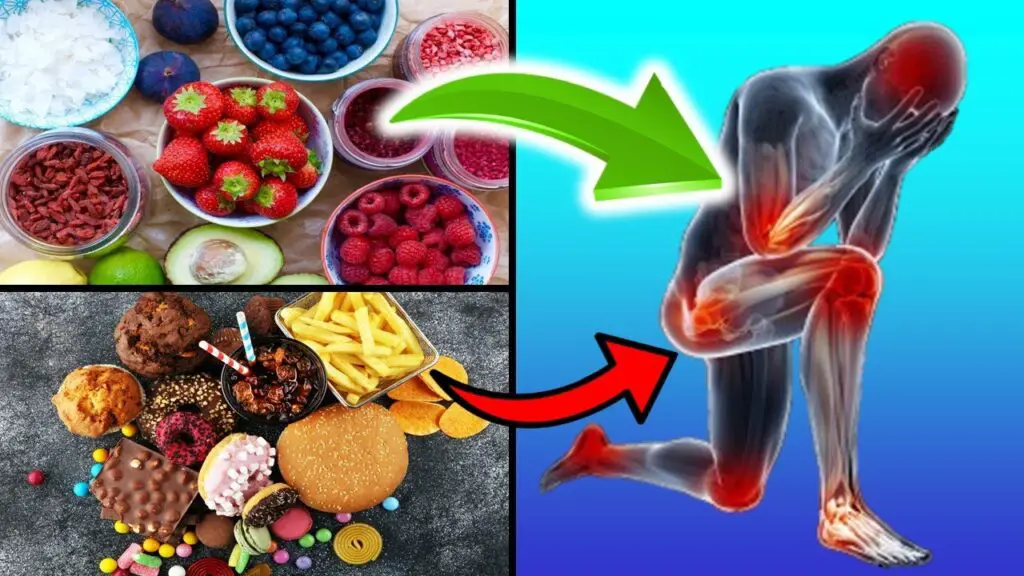Not all foods are created equal! We all enjoy splurging on unhealthy foods from time to time, and that's fine. However, regularly eating certain foods can affect our bodies in a particular way. These foods can cause inflammation.
Inflammation is a necessary process. For example, when a wound or injury is healing, you'll notice redness, swelling, and heat around the injury site. This aids the healing process. Inflammation also works internally, to fight off toxic chemicals, infections, or the side effects of stress.
Unfortunately, while inflammation is a necessary process, too much can seriously impact our health. Continual, chronic inflammation can cause our bodies to turn against themselves. This can lead to long-term health problems. These problems can include irritable bowel disease, rheumatoid arthritis, celiac disease, and more. Inflammation can also increase your risk of heart disease and cancers.
So, which inflammatory foods should you avoid? More importantly, what kinds of anti-inflammatory foods should you eat? Should you consider an anti-inflammatory diet? Let's find out.
Foods that Cause Inflammation
It's worth noting that eating inflammation-causing foods occasionally or in moderation isn't a big deal. In fact, some foods that are classed as healthy can cause chronic inflammation if eaten too often. As with most things, moderation is key.
1. Fried Food

Most of us love delicious fried food. However, too much food fried in vegetable oils can cause serious, low-level inflammation in your body. Fried foods like french fries contain high levels of AGE, or Advanced Glycation End product. High AGE levels result in inflammation, as well as a high trans fats content. If you're concerned about the amount of fried food in your diet, you could use an alternative method to cook food. For example, you could bake a meal in the oven instead of frying.
2. Grain-Fed Meats
Traditionally, livestock was grass-fed as standard. However, grain is now the primary food source for livestock. Grain-fed livestock requires additional antibiotics and substances to aid growth, and these substances eventually end up in our red meat. Red meat tends to contain high levels of saturated fat, which can also increase inflammation in the body.
3. Sugar
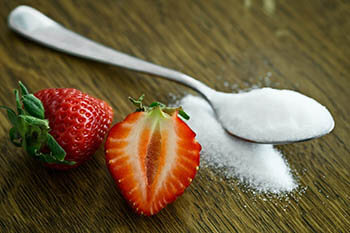
It's difficult to find a food that doesn't contain sugar. Even fruits and vegetables contain a form of sugar. While some sugar is fine, too much can lead to an overproduction of cytokines in the body. Cytokines directly impact inflammation.
Since sugar is everywhere, it's important to keep an eye on your daily sugar intake. Sweets, sodas, and other highly sugary food contain sugar of course, but so do baked goods, commercially made bread, and processed foods. Sugar often comes hand-in-hand with trans fats, though not always. Reducing your sugar intake is not as simple as forgoing sugar in your tea and coffee!
4. Alcohol

Alcohol is a well-known cause of chronic inflammation. Surprisingly, one of the key factors of alcohol-related inflammation is in fact sugar. Since most alcohols (cocktails, wines, and beers are the top culprits) contain high levels of sugar, this is what causes inflammation.
Additionally, alcohol also causes the liver to inflame. Moderate alcohol use is fine, allowing the body to recover from the inflammation and flush out toxins. Excessive alcohol use is a different matter. The body struggles to recover from the inflammation, and the long-term effects can be much more serious.
5. Excess Omega-6 Oil
Omega-6 makes up one of the three omega fatty acids, which are essential for good health. However, taking in too much of one of the three elements can result in inflammation. When omega-6 fatty acids are broken down, they are converted into prostaglandins. This breakdown process is what causes inflammation in the body.
So, if you suspect you could have an omega-3 fatty acids deficiency, it's wise to seek medical advice from a doctor before taking omega 3s in the form of health supplements or upping your fatty fish intake. You may inadvertently end up taking in more omega-6 fatty acids than your body needs.
6. Refined Flours
Refined flours are commonly used in processed foods. These flours pass through our digestive system very quickly, which causes a rise in sugar and insulin levels. This sharp rise in sugar and insulin is what causes an inflammatory response.
7. Dairy
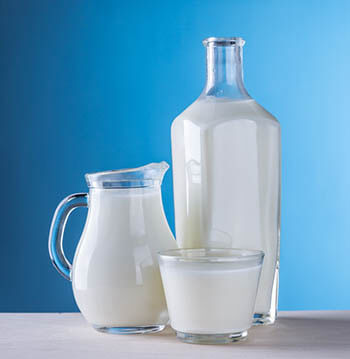
Dairy is often hailed as the best source of calcium, which is quite true. However, too much dairy can be very bad for your health. This is because lactose is difficult for our bodies to digest. Lactose and a struggling digestive system is a prime recipe for inflammation.
Lactose intolerance is also a growing trend. Some people consider themselves only a little intolerant and continue to eat dairy products. However, this can significantly affect inflammatory markers within the body. If you're lactose intolerant or notice any adverse symptoms when you eat dairy products, it's important to avoid dairy of all kinds.
8. Store-Bought Bread

Let's be honest here - most of us would rather buy commercially made bread from the store than bake our own. Store-bought bread is cheaper, easier to access, and sometimes tastes better than our own efforts!
However, commercially made bread is often improperly fermented and filled with sugars, refined carbohydrates and additives. White bread is especially known for its high sugar content. Improper fermentation leads to lower amounts of gluten and starch in the bread, making it more difficult for us to digest. Once again, a struggling digestive system leads to increased levels of inflammatory markers. If you're going to buy bread, go for whole grains, the healthier option.
9. Processed Meat

Sausages, hot dogs, ham, jerky, and any number of other processed meats are extremely high in AGEs and saturated fats. Processed meat is one of the worst culprits behind chronic inflammation. Unfortunately, they are mistakenly regarded as "healthy" alternatives, since they contain meat.
10. Additives (E Numbers)
Additives, or the dreaded E numbers, are ingredients in just about every kind of sweet or candy you can think of. Ice cream and anything with artificial flavorings or colorings will contain additives. Since these additives aren't natural ingredients, our bodies struggle to process them. These ingredients are flushed out of our systems as toxins, which causes inflammation and a struggling digestive system.
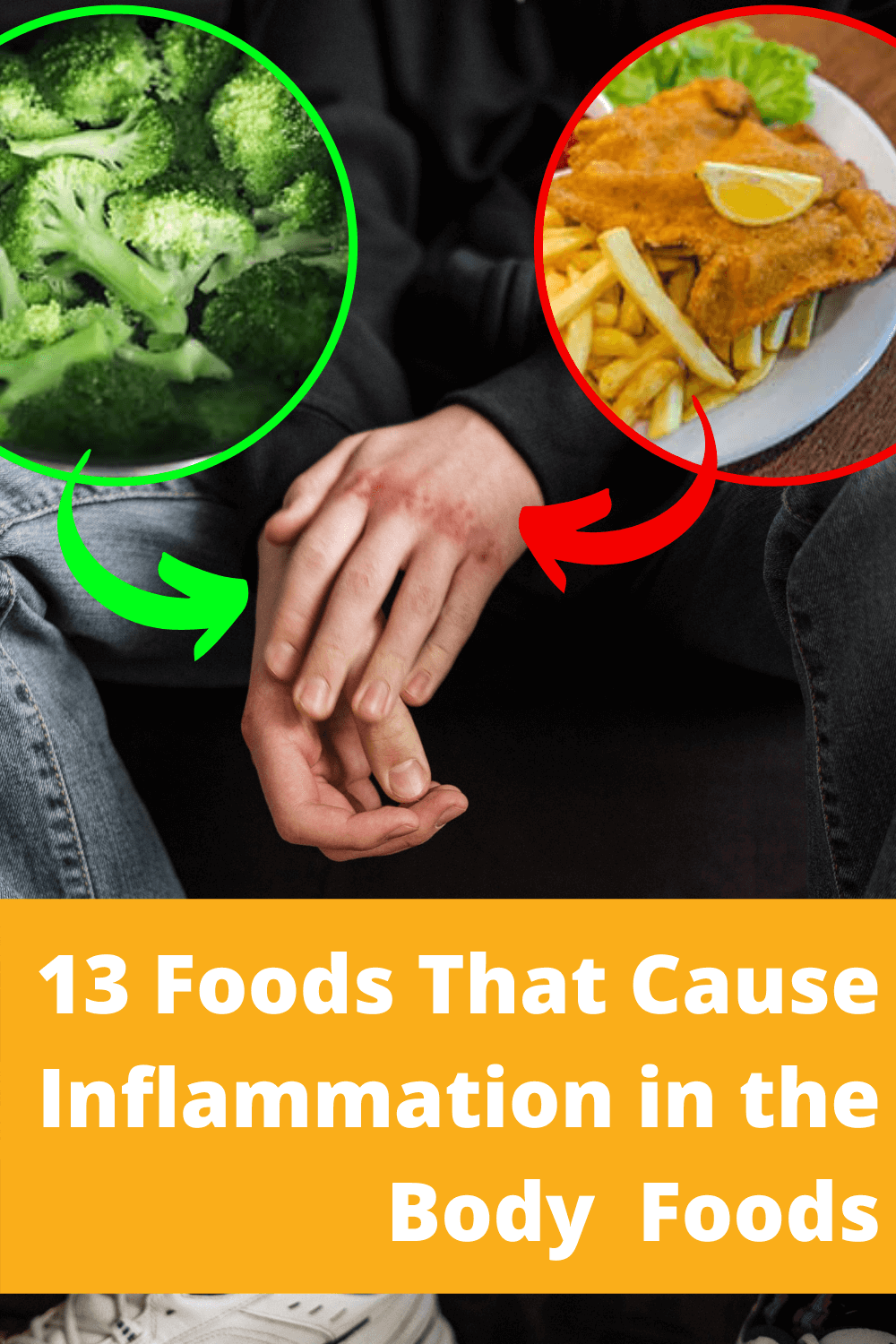
11. Corn Syrup
Corn syrup is another popular pro-inflammatory ingredient. It contains a higher fructose content than sugar, and naturally, can promote inflammation.
12. Processed Juices
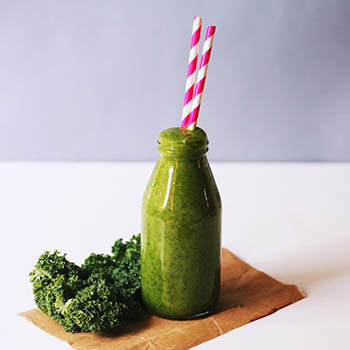
Commercially bought juices often contain high levels of sugar. Additionally, they usually go through a pasteurization process. While this kills toxins and bad bacteria, it also kills good bacteria, too. This means that you're not getting any good out of these juices, only the sugar. The high levels of sugar and lack of good bacteria can cause inflammation.
Of course, not every kind of juice is necessarily bad for you. Smoothies and juices can be full of nutrients and vitamin C, and many count towards your five fruit and vegetables a day. To know exactly what you're getting in your juice, it's good to try homemade options.
13. Agave
Commonly used as a sugar substitute, agave isn't necessarily a healthier choice. In fact, agave contains much more fructose than regular white sugar. Since high levels of sugar cause inflammation, agave may be contributing to future health issues.
An Anti-Inflammatory Diet: Foods that Reduce Inflammation
Now that we've discussed foods to avoid, it's time to look at anti-inflammatory foods that decrease your risk of chronic inflammation. Anti-inflammatory diets are growing in popularity, and certain foods are known for their anti-inflammatory properties.
So, what foods should you add to your diet?
1. Berries
This includes raspberries, blueberries, strawberries, and also fruits like cherries and grapes.
2. Green, leafy Vegetables
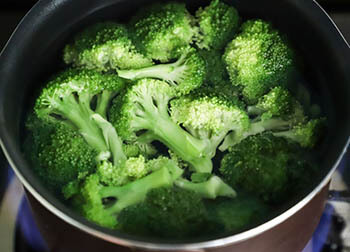
Vegetables like spinach, broccoli, kale, and more are all packed with iron, vitamins, and anti-inflammatory properties.
3. Green Tea

What could be more soothing than a relaxing cup of tea? Green tea is a powerful antioxidant, and may help to reduce your chances of a number of health issues. It also goes a long way to reduce inflammation.
4. Dark Chocolate
Dark chocolate is considerably lower in sugar, dairy, and additives than its sweeter cousins. Dark chocolate is a powerful anti-inflammatory, and it's also delicious!
5. Avocadoes
Avocadoes are at the top of the "healthy veg" list! They're packed with nutrients, and may help to reduce inflammation.
6. Tumeric
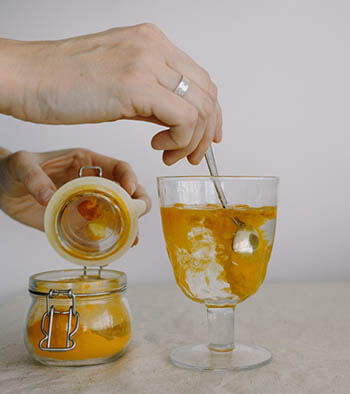
The healthy part of Tumeric is found in one of its ingredients, curcumin. Curcumin is a strong anti-inflammatory, and Tumeric has been connected with reducing inflammatory response of all kinds. You can add Tumeric as a spice to your meals, or even give Tumeric herbal tea a try.
Avoiding Inflammatory Foods
As you can imagine, this is by far an exhaustive list of anti-inflammatory foods. Most fruits and vegetables are packed with nutrients, vitamins, antioxidants, and anti-inflammatories - making them ideal to fight inflammation and decrease inflammatory markers. Homemade juices and smoothies can give you a sugary kick without refined sugars.
The key to remember is moderation. Enjoying fried foods or sugar foods is fine, so long as it isn't a large part of your diet. Inflammation isn't a problem in itself, it's a natural response to injury or infection. However, when processed foods go through our digestive system, our immune system sees them as a threat and triggers a response.
This response includes inflammation of the affected area. Regular inflammation of our organs or digestive system will create problems over time.
So, your best bet is to keep your diet simple. You can't go wrong with fruit and veg! Meat in itself generally isn't a problem, presuming you keep processed meat to a minimum. Sugary treats are fine, in moderation.
However, if you're concerned, and especially if you're trying to lose weight, why not seek medical advice from your doctor or a nutritionist about how an anti-inflammatory diet may help you? Try and find an eating plan that's sustainable and works for you. Good luck!

